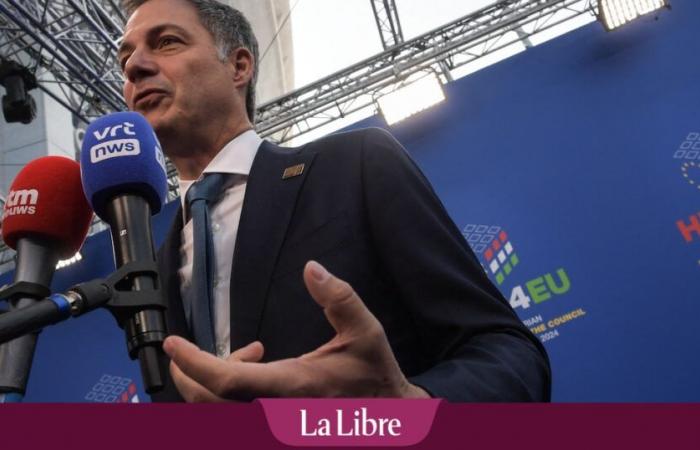How does this budget work?
To ensure the day-to-day management of the State, the federal government operates with what is called the “provisional twelfths”. Envelopes valid for one month and including expenditure as well as available revenue and which are equivalent to the same month of the previous year. In other words, the current envelope for the month of November 2024 is identical to the budget for November 2023.
Budget: employers and unions recommend reducing the deficit by 23 billion until 2030
A situation which further undermines state finances, already tainted by a deficit of more than 25 billion euros. “We find ourselves in a case where, on the one hand, expenditure increases by inertia like the tide and, on the other hand, growth is not as high as we had expected and we end up with lower revenue“, explains Jean Hindriks. According to the economist, such a perspective would require government action to reduce certain expenses and garner new revenue; which is contradictory with his current affairs position.
Clearly visible consequences
Concretely, this budgetary “blockage” deprives certain beneficiaries of replacement income (in the event of illness, unemployment or retirement), of the “well-being” envelope. This social mechanism makes it possible to revalue this income and the government is supposed to decide on its distribution. “Somehow, we can say that this is a good thing; there are a billion euros waiting there but for people who have small pensions, it is problematic if inflation increases“, illustrious Jean Hindriks.
Note that the mechanisms for indexing social expenditure are in the sights of Bart De Wever. Which notably triggered the disagreement with Vooruit.
Conner Rousseau’s nightmare
The Inami budget is also in an impasse, while, according to Jean Hindriks, “on the one hand, the outgoing government was unable to complete the file and, on the other, the new majority wants to have control to control health care spending.”
But, ultimately, the entire budget is “problematic” for the professor at UCLouvain. In the current state, Belgium cannot meet its obligations towards Europe, linked among other things to the stability pact that it imposes. The Commission is also asking for a postponement of the budgetary trajectory for the month of September, which Bart De Wever finally promised to postpone for the end of the year.
The shadow of Trump’s election
Among the levers available to the government in budgetary matters, there is the possibility of taking so-called “urgent” measures. Jean Hindriks targets one that could be necessary since the election of Donald Trump to the White House. “We know Trump’s position on NATO deadbeats, and Belgium is clearly in the crosshairs“, he explains.
“Donald Trump is the only American president who has not officially committed to the principle of mutual defense”
Donald Trump could in fact threaten Belgium to curb its exports to the United States if it does not reach the threshold of two percent of its GDP dedicated to Defense. Jean Hindriks specifies: “If the army budget has to be increased by one percent to reach the NATO quota, that represents five billion euros while Belgium almost reaches a deficit of thirty billion.“
The time is urgent
The economist summarizes by saying that the government is “stuck“between the demands of the European Commission, possible threats from Trump and the downwardly revised growth outlook which suggests lower revenues, further deteriorating the budget deficit.”At some point, we will no longer have the choice of having a government agreement before the end of the year to meet these obligations.“, he insists.
An urgent situation that the Prime Minister of the current affairs government understands well. He announced last Friday that his party, the Open VLD, was ready to open to negotiations to develop a budget on time.






